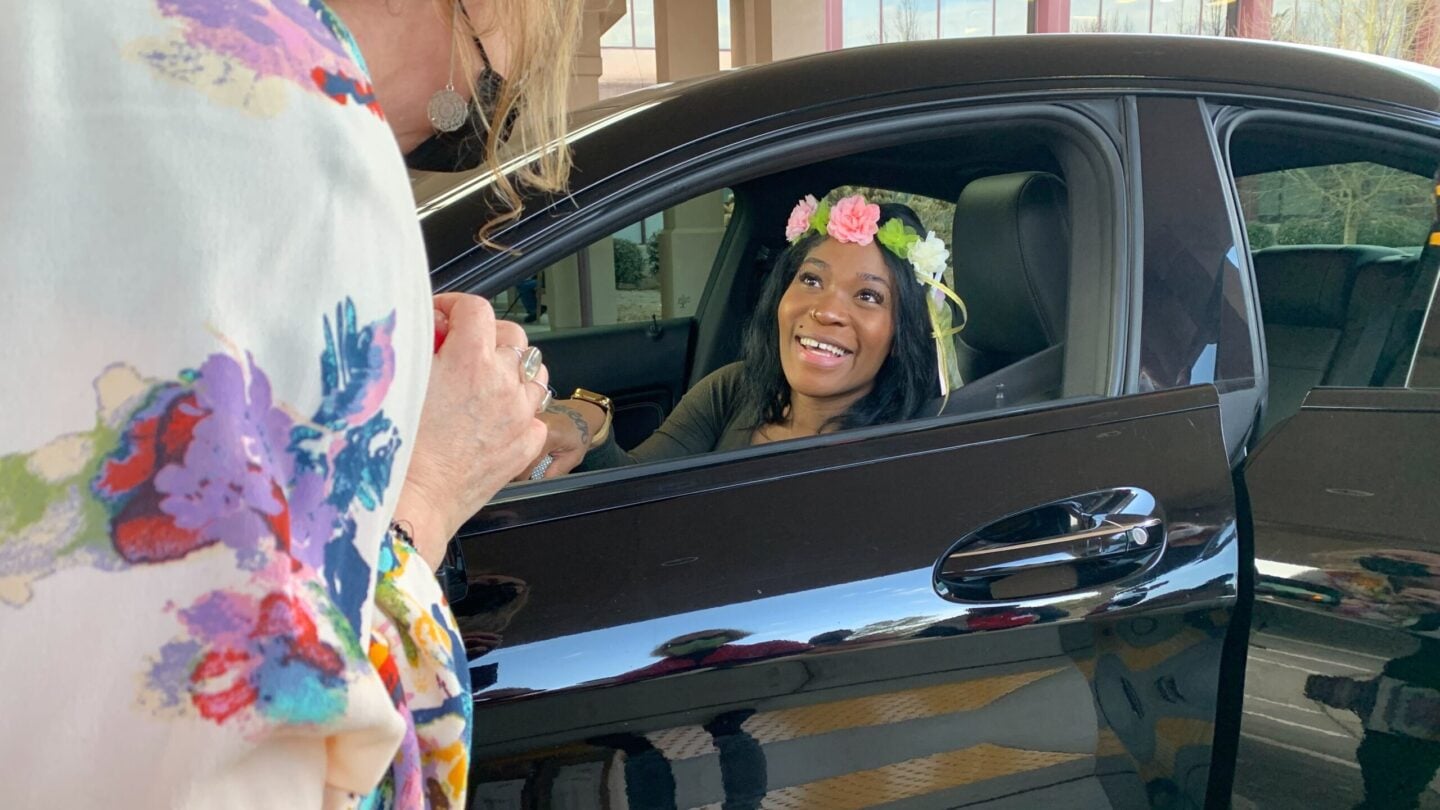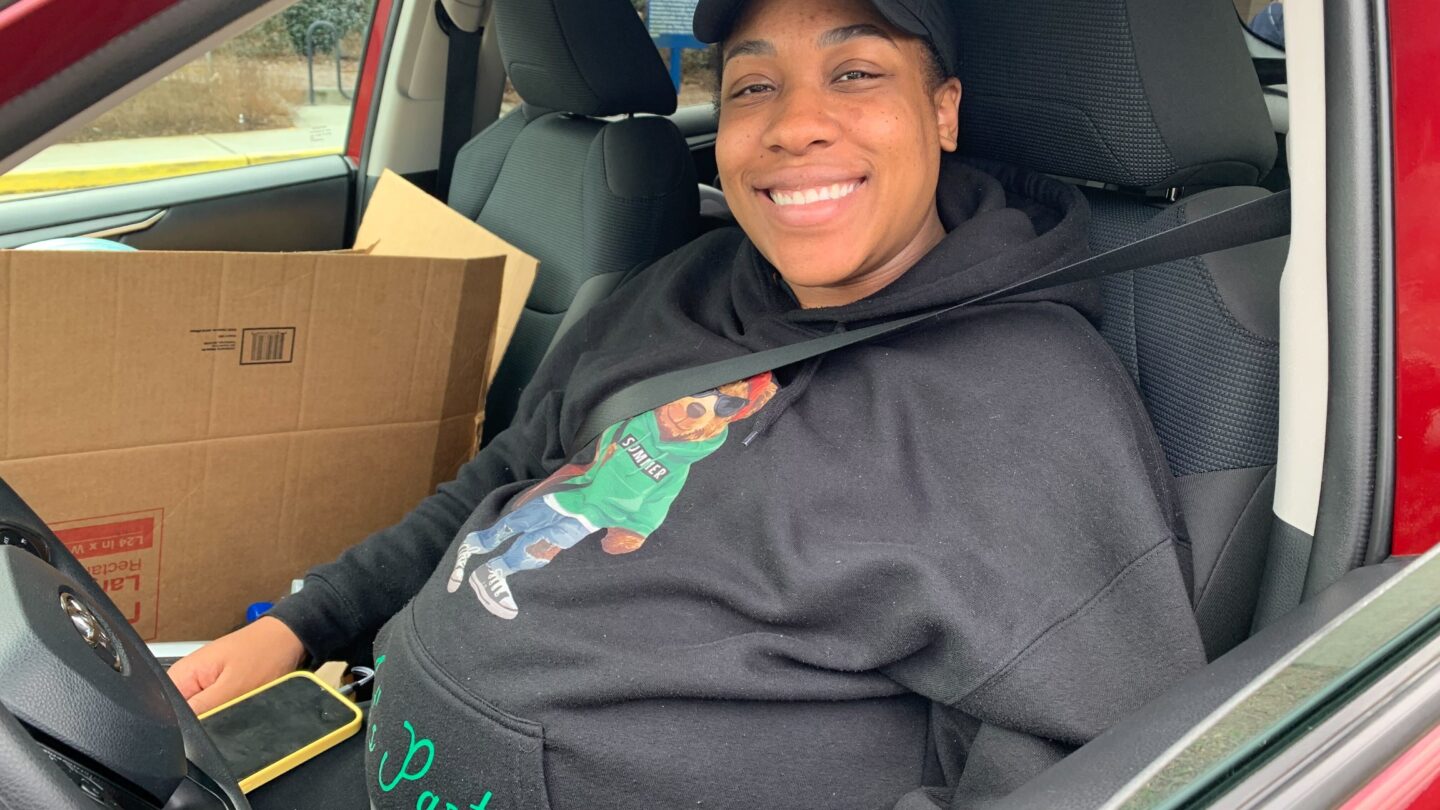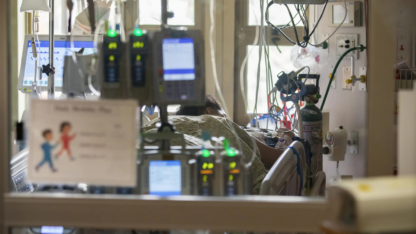Atlanta VA hosts baby showers to boost pregnant veterans' health outcomes

More women than ever are serving in the United States military. And the Veterans Administration is acknowledging it needs to better serve their health needs.
That’s as there is concern women veterans may be at heightened risk for pregnancy complications. To try and help some of Georgia’s most vulnerable pregnant veterans, the Atlanta VA Clinic invites them to a series of surprise baby showers.
This Year on WABE: 2023
2023 was a big year at WABE. We turned 75, launched WABE Studios, and the WABE Newsroom continued to cover the critical issues Atlantans care about most. Here are a handful of stories, photos, television and podcasts we think stand out from this year.
More than a dozen volunteers in matching t-shirts mill around outside the entrance to the VA Clinic in Decatur. A folding table is piled high with party favors, gift bags and lots of baby stuff.
A car pulls up. And a volunteer with a clipboard hypes up the crowd, which bursts into applause and cheers.
“Thank you for your service! Congratulations!”
The pregnant veteran behind the wheel of the car looks surprised by so much attention. She smiles and rolls down her car window. Volunteers and VA staff members cluster at the car and offer her a tiara of green, white and pink flowers.
“Would you like to wear it? Stunning,” one said. “Remind us what you’re having?”
“I’m having a girl,” she said.
They ask her questions about her pregnancy and due date as volunteers pack the backseat with boxes of diapers and other supplies. VA Women Veterans Program Manager Kathleen O’Loughlin passes her a gift card through the car window.
“We want to give you a $100 gift card to get the last-minute baby needs because we know there’s a lot,” O’Loughlin said.
In minutes, the veteran’s car is packed and ready and she drives off. Volunteers prepare for the next car to arrive.
The Atlanta VA throws a shower like this every few months for about 20 pregnant veterans at a time. It also connects every veteran in the program with a specialized medical care team that includes doctors and nurses, mental health providers, social workers and maternity care coordinators.
O’Loughlin said organizers target women who might need extra support. For instance, women pregnant with multiple babies, or who have service-connected disabilities.
“This is an extra set of eyeballs on them,” she said. “Are you making sure you’re taking your blood pressure medicines? Are you meeting with your doctors?
Research shows these kinds of check-ins are important for avoiding complications.
According to numbers from the Georgia Department of Public Health, the state has some of the most dismal maternal mortality rates in the nation. For Black Georgians, the rates are even worse. Black women are more than twice as likely as white women to die during or after pregnancy.
Now, there’s preliminary data suggesting women veterans may be even more at risk than the general population.
“A lot of our women veterans have the diagnoses of anxiety, depression, said Dr. Jamya Pittman, an Internal Medicine physician and the VA Women’s Health Medical Director.
“They may also have PTSD in addition to a myriad of other diagnoses like hypertension and diabetes. We also know that pregnancy in itself can be a stressor on the body,” Pittman said.
Pittman said the baby showers are designed to make it easier for pregnant veterans to access health care and boost their well-being.
“This visible showing of support, this community engagement, this celebration” she said “is our way of helping to decrease stress and allow the woman veteran to know that she has a partner in her health care and with the arrival of the baby.”
Carisma Carter is a Navy veteran who stops by the shower. The 28-year old’s driver’s seat is pushed far back from the steering wheel to make room for her big belly.
“I’m eight months. I’m having two boys, twins,” she said. “It’s my first pregnancy.”
She recently relocated to Georgia with her husband, who works at Fort Benning.

Carter said she knows the pregnancy risks she could face as a Black woman.
“That scares me but what can I do? You know, I have family around me. I take care of my body during the pregnancy but yeah, I’m very aware,” Carter said. “And I just try to stay positive.”
She says she’s grateful the VA is doing more these days to try and support pregnant veterans.
“Just checking on the women, you know, just reach out here and there just to see how they’re doing mentally and physically,” she said.
VA health officials say they hope to do more of this work.
And they plan to extend the program to continue checking on women for more months after they give birth.
“It helps me to know that I’m not in this alone, that there is someone out there that constantly checks on me, even after the baby has arrived,” said Army veteran Breanna Richardson, 27.
“Because you will feel like you are just all alone. But to know that people are still keeping in contact months after your baby has arrived is a great feeling.”









